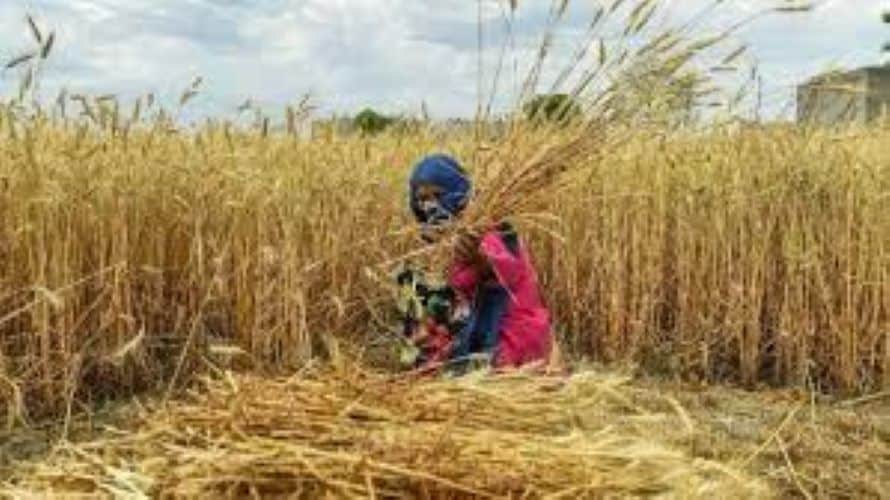Government Extends Crop Insurance Schemes Until 2026

The Indian government has taken a significant step to support farmers across the nation. The Union Cabinet, led by Prime Minister Narendra Modi, has approved the continuation of the Pradhan Mantri Fasal Bima Yojana (PMFBY) and the Restructured Weather Based Crop Insurance Scheme (RWBCIS) until the 2025-26 fiscal year. This decision comes with a substantial financial commitment of ₹69,515.71 crore, aimed at providing risk coverage for crops affected by natural calamities. The extension of these schemes is expected to enhance the resilience of farmers against unpredictable weather patterns and other environmental challenges.
Financial Commitment to Farmers
The financial outlay of ₹69,515.71 crore is a crucial investment in the agricultural sector. This funding will ensure that farmers receive adequate support in the face of non-preventable natural disasters. The PMFBY and RWBCIS are designed to mitigate the financial losses that farmers may incur due to adverse weather conditions. By extending these schemes, the government aims to provide a safety net for farmers, allowing them to continue their agricultural activities with greater confidence.
The decision to continue these insurance schemes reflects the government’s commitment to the welfare of farmers. It acknowledges the challenges they face, particularly in a country where agriculture is heavily dependent on seasonal weather patterns. With this financial backing, farmers can better manage risks associated with crop production, ultimately leading to more stable incomes and improved livelihoods.
Introduction of the Fund for Innovation and Technology
In addition to extending the insurance schemes, the Union Cabinet has approved the establishment of the Fund for Innovation and Technology (FIAT). This fund will have a corpus of ₹824.77 crore and aims to infuse advanced technology into the implementation of the insurance schemes. The goal is to enhance transparency and improve the processes of claim calculation and settlement.
FIAT will support various technological initiatives, including the Yield Estimation System using Technology (YES-TECH) and Weather Information and Network Data Systems (WINDS). These initiatives are designed to modernize the agricultural insurance landscape, making it more efficient and reliable for farmers. By leveraging technology, the government hopes to streamline operations and reduce the time taken for claims to be processed.
The introduction of FIAT signifies a proactive approach to addressing the challenges faced by farmers. It recognizes the importance of technology in agriculture and aims to create a more robust framework for crop insurance. This initiative will not only benefit farmers but also contribute to the overall growth and sustainability of the agricultural sector.
Technological Advancements in Crop Insurance
The YES-TECH initiative is a key component of the government’s strategy to improve crop insurance. This system utilizes remote sensing technology for yield estimation, assigning a minimum of 30% weightage to technology-based yield estimates. Currently, nine major states, including Andhra Pradesh, Assam, and Madhya Pradesh, are implementing YES-TECH. The initiative aims to phase out traditional crop cutting experiments, which can be time-consuming and less accurate.
Moreover, the WINDS initiative focuses on establishing Automatic Weather Stations (AWS) and Automatic Rain Gauges (ARG) at local levels. This will significantly enhance the density of weather data networks, providing hyper-local weather information. The government plans to increase the current network density fivefold, which will help farmers make informed decisions based on accurate weather forecasts.
The implementation of these technological advancements is expected to revolutionize the way crop insurance operates in India. By integrating modern technology into the agricultural sector, the government aims to provide farmers with timely and precise information, ultimately leading to better crop management and increased productivity.
Focus on North Eastern States
The government is also prioritizing the saturation of crop insurance coverage in the North Eastern states. To facilitate this, the central government shares 90% of the premium subsidy with these states. However, due to the voluntary nature of the scheme and the lower gross cropped area in the North Eastern region, flexibility has been introduced. This allows states to avoid surrendering funds and reallocating them to other development projects if necessary.
The unique challenges faced by farmers in the North Eastern states require tailored solutions. The government’s commitment to supporting these regions reflects its understanding of the diverse agricultural landscape in India. By ensuring that farmers in the North East have access to crop insurance, the government aims to enhance their resilience and promote sustainable agricultural practices.
The extension of the PMFBY and RWBCIS, along with the introduction of FIAT and technological initiatives, marks a significant advancement in India’s agricultural policies. These measures are designed to support farmers, improve crop insurance processes, and ultimately contribute to the growth and sustainability of the agricultural sector.
Observer Voice is the one stop site for National, International news, Sports, Editor’s Choice, Art/culture contents, Quotes and much more. We also cover historical contents. Historical contents includes World History, Indian History, and what happened today. The website also covers Entertainment across the India and World.

